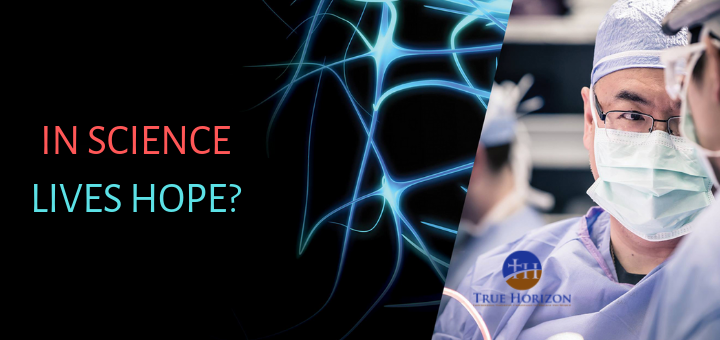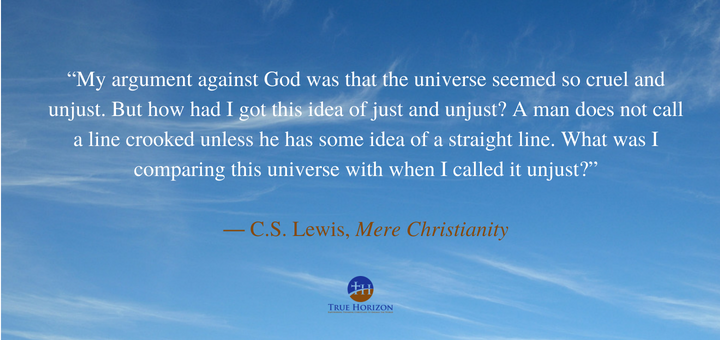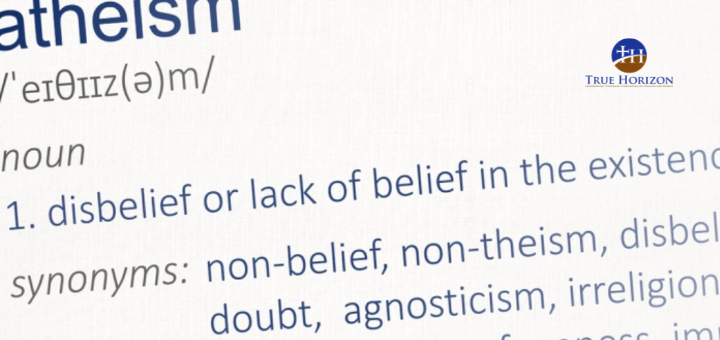When Science Becomes a Religion
Science, and the technology it breeds, is a dominating force in our culture. Understandably so. Science has extended our lives and made them more comfortable. It promises to do more of the same in the future. But the successes of science also tempt us to place more value in it than it deserves. As a society, we do more than accept the idea that science provides a way to know how to improve the human condition. We’ve actually been led to believe that science gives us the only way to know anything. This way of thinking about science is called scientism. And scientism is more than a misplaced belief system. When science becomes a religion it also becomes a dangerous ideology. Sadly, all of us have accepted this idea to some extent. But it pays to be clear in our thinking about science.
What Is Scientism?
Philosopher of Science Tom Sorell defines scientism as:
“… the belief that science, especially natural science, is … the most valuable part of human learning … because it is the most authoritative, or serious, or beneficial … or that it is always good for subjects that do not belong to science to be placed on a scientific footing.”
There is a lot of history that has led us to think this way but I want to focus on how scientism affects the world we live in today.
A Reflection Of Our Scientism
Recently, a university near my home launched a citywide marketing campaign. Its purpose was to highlight the unparalleled success of the university hospital’s medical research and treatment programs. No doubt, they are phenomenal. But the slogan we see in local TV, radio, and billboard ads around our city says this:
“In Science Lives Hope.”
I don’t want to make to much of a local city advertising campaign, but do you see the reflection of scientism in this billboard? It’s not just that science is a valuable pursuit. We live in a culture that thinks science is the pathway to hope.
This is the ultimate promise of scientism. And the first thing you should notice is that it’s not a scientific claim. You can’t do a science experiment to prove that “in science lives hope.” And you can’t use science to show that science is the only way to know things. That’s because those kinds of claims aren’t scientific. At best, they are philosophical. And in the end, they’re really religious.
Here’s why I say that.
What Is Science?
The dictionary defines science as, “a branch study … that gives systematic knowledge of the physical or material world gained through observation and experimentation.” It comes from the Latin word scientia, which means “knowledge.” And that may be where the corruption of our thought about it began.
The problem with scientism is that it tells us that science is our only source of knowledge. But it’s not. Science is just one way to understand the world in which we live. And it’s not even the most reliable one.
Things You Know Without Using Science
There are plenty of things you know about the world that you didn’t discover by doing science. For instance, you know that:
- Statements about the world cannot be both true and false at the same time and in the same way. This is just one of several laws of logic that you use all the time without even thinking about it.
- You don’t need to conduct a science experiment to know mathematical truths (like 2+2=4). These are things that are necessarily true. They couldn’t be any other way.
- You know more about what is going on in your own mental life than any other person (or scientist) ever could. In fact, the only way someone else could know what you’re thinking or feeling is if you tell them.
- You have moral knowledge about the world and that it has no basis in science. There is no science project could convince you that torturing little babies for fun is a good thing to do.
The Prerequisites Of Science
Don’t miss the significance of these things. Each of them is a form of knowledge that you have without ever doing science. In fact, you have to use each of them before you can do science at all.
Science depends on using logical thinking to determine how to conduct an experiment or evaluate the data you get from one.
Mathematics is the language of science. You have to use math to describe the methodology and findings of any scientific experiment.
Every scientist has to be aware of his/her own mental states to determine how to plan and conduct their scientific research.
In order to rely on the conclusions of scientists, you have to trust that the scientists themselves are telling you the truth.
Science Doesn’t Say Anything
The important thing to understand about science is that it is nothing but a tool we use to understand the way our world works. Science doesn’t really tell us anything on its own. Or, as the infamous Frank Turek puts it:
“Science doesn’t say anything; scientists do.”
And therein lies the problem with scientism. What it teaches us depends on the philosophy of scientists who practice it. What they believe about the world can’t help but be reflected in the conclusions they draw. It’s human nature.
When we accept the notion that science is our only source of knowledge about the world, we fall prey to the presuppositions of scientists. That’s why I say scientism is a religion. It’s a belief system. It’s a way of thinking about the ultimate questions in life.
Where Science Can Lead
The sciences of astronomy, astrophysics, and cosmology brought us direct knowledge that the universe had a beginning. Some scientists view that as evidence for a Creator. Others deny that it infers any such thing.
From the biological sciences, we have learned incredible facts about the inner workings of the cell. Some scientists see a Designer in their microscopes. Others see the complex outcome of an undirected, natural process.
Nuclear physics created radiation oncology to kill cancer. But it also created the atom bomb.
Science and technology showed us ultrasound images that confirmed the reality of human life in the womb. And it is science that allows some parents to destroy that life if it doesn’t measure up to the genetic test results they expected.
It was scientists who developed vaccines, and who continue to find ways to cure genetically-based diseases. But it was also scientists who pursued eugenics, practiced forced sterilization, and conducted experiments on living human beings in the Nazi Death Camps.
Science has the potential to increase human flourishing. But it is no less likely to bring on an inconceivable level of human suffering. It all depends on the purpose you think it promises.
The Danger Of Scientism
Recently, I was “listening in” on a Facebook discussion about the nature and value of human life. I cut-and-pasted the following exchange from the comment thread:
Q: Do you believe that you have an intrinsic right to life, liberty, etc?
A: No, I do not. But I would believe in them if you could produce these intrinsic rights such that I could put them on my workbench and run reliability tests on them.
This is what you get in a culture convinced that anything worth knowing comes from science. It is the fruit of scientism — a person who believes that life, and love, and justice are illusions unless you can test them on a workbench.
Make no mistake, scientism is a religion. But it is not a religion that offers hope. It may be able to cure your disease, or extend your life, or make that life more comfortable. These are all good things. But they are temporal.
Real hope is eternal. And you’ll never find it in a test tube or a telescope.







I like the clear, easy to remember, way you express your thoughts!
You might be interested in a treatment of Spinoza’s influence on the development of scientism and related ideas. It is in the latest issue of the Creation Research Society Quarterly. I could send it in a pdf file if you would like.
Thanks, John. Yes, I would appreciate the PDF. Always interested in expanding my base of knowledge. Thank you!
My whole problem with Science as a Religion (As In Fauci’s ‘I Am The Science’ – Trust ME Or Be Considered a Heretic – Religion) Is that it denigrates all who disagree with it, in spite of it often being proven wrong. The most recent case relates to Fauci:
Government officials trusted Fauci and Brix, but what they trusted was pseudo-science:
They covered up vaxx animal trials
They ignored the results of ‘test runs’
They ignored the increased number of vaxxed people who still caught COVID
They still ignore the vaxx side effects…
And it goes on….
It makes you wonder about a hidden agenda.
Exactly, Penny. But as far as the hidden agenda goes … it doesn’t seem all that “hidden” to me anymore.